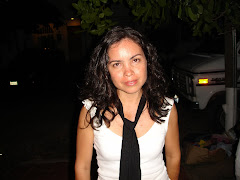The Teaching Knowledge Test (TKT) is a test developed by Cambridge ESOL for teachers of English to speakers of other languages. TKT tests candidates' knowledge of concepts related to language, language use and and the background and practice of language teaching and learning.
TKT consists of three modules which can be taken together, or separately, in any order. The content of TKT is tested by means of objective tasks, such as matching and multiple choice. The test for each module consists of 80 questions.
MODULE 1: Focuses on terms and concepts commonly used to describe language and language skills; the background to language learning; activities and approaches in ELT and assessment.
MODULE 2: Focusses on lesson planning and the use of resources and materials.MODULE 3: Focuses on the language that teachers and learners use in the classroom and on techniques for classroom management.
The TKT Course has four main aims:
To introduce readers to the concepts and terms about teaching and learning that are central to TKT, and to give them opportunities to do exam practice with TKT sample tests tasks and exam papers.
To introduce readers to the main current theories, approaches and activities in English Language Teaching (ELT) and assess their usefulness for the classroom.
To share with readers some of the many resources available to English language teachers.
To provide materials and activities that give teachers opportunities for professional development by exploring the concepts which have been introduced.
Let's touch on just a few of these features:
Teachers from Vallarta and Guadalajara trying to grasp the bunch of concepts about grammar and other stuff that are essential to pass the TKT.
Trainer Idolina Camargo speaking and clearing up the terms we didn't understand with simple examples.
The difference between compound words and collocations?
Compound Words: two or more words together that have meaning as a set, e.g. (exempli gratia, which means "for the sake of example) telephone number, bookshop.
Collocations: words that often occur together, e.g. to take a holiday, heavy rain.
Teacher Ernesto summarizing what he read about collocations.
Miriam lying on her belly doing her homework too.
Karola exposing that learning new vocabulary is not just learning new words, but it is often learning familiar words in new combinations. That's what collocation is.
Phonology is the study of the sound features used in a language to communicate meaning. In english these features include phonemes, word stress, sentence stress and intonation.
PHONEMIC SYMBOLS (Brittish Pronounciation).
Easy? Try reading the following:
/ˈtʃɒklət/
/ɪgzæmɪˈneɪʃn/
/ti:tʃ/
/prənʌnsɪˈeɪʃn/
/ˈlæŋgwɪdz/
We will continue before a pause. This is just the first day and we have got a lot of stuff. Let's have breakfast!
Fran couldn't make up her mind. "To cheese or not to cheese... that is the question..."
Yummy desserts!
Teachers Lilly, Gaby, Carina and Miriam enjoying the /əˈbʌnðənt/ breakfast.
Miriam, /nəʃelˈ/, excuse me, Nazhel and Francis having a recess.
This time, the course was offered at Crown Paradise Hotel in Puerto Vallarta the week of April 13 to 16 from 8:00 am to 4:00pm, so, you could notice that it was so stressful since this was an extra-intensive course. Actually the teacher gave us work to do outside of class and a lot of stuff to read.
I almost couldn't bear feeling the fresh breeze of the sea and the relaxing sound of the waves. Oh, and that awful view...!
We really had a hard time studying even after lunch time under the palapas on the beach.
Reading is one of the four language skills; reading, writing, listening and speaking. It is a receptive skill, like listening. This means it involves responding to a text, rather than producing it. Very simply we can say that reading involves making sense of the text. To do this we need to understand the language of the text at word level, sentence level and whole-text level. We also need to connect the message of the text to our knowledge of the world.
Drinking alcohol to relax? Of course not! They are just making some practice about motivation.
Motivation is the thoughts and feelings we have which make us want to do something, continue to want to do it and turn our wishes into action, i.e. motivation influences:
Why people decide to do something
How long they want to do it for
How hard they are prepared to work to achieve it.
Motivation is very important in language learning. It helps make learning successful.
Irma teaching about power teaching. It was great!
Learner Needs: When a learner learns a foreign language he or she has various kinds of needs which influence his/her learning. They are personal needs, learning needs and future professional needs. Meeting these learner needs is part of being a good teacher.
Idolina, Karola, Irma: you are great teachers! You are concerned about our needs:
Fran, Miriam and I taking a hot bath in the jacuzzi.
Nazh still analyzing (analysing if brittish) what she learned.
Speaking is a productive skill, like writing. It involves using speech to express meanings to other people.
At the kids area. Kids are the most receptive students.
Feedback: Giving feedback is giving information to learners about their learning. Feedback can focus on learners' language or skills, the ideas in their work, their behaviour, their attitude to learning or their progress. Sometimes we give feedback to the whole class, at other times we give feedback to small groups or individual learners. The purposes of feedback are to motivate learners and to help them understand what their problems are and how they can improve.
Cambridge, here we go! Give us feedback!












































